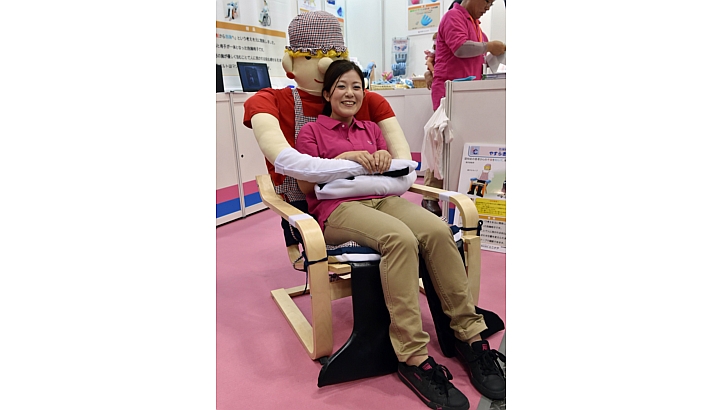Loneliness may lead to early death — study

An employee of Japan’s nursing care goods maker UniCare demonstrates an anti-loneliness chair at the annual International Home Care and Rehabilitation exhibition in Tokyo. AFP
WASHINGTON, United States — Loneliness can increase the risk of premature death by 14 percent in older adults, according to a study published Monday that posits a physiological basis for the phenomenon.
The dangers of social isolation have long been known but its effects on the body have not been well understood, the researchers said in the work published in the Proceedings of the National Academy of Sciences/PNAS.
Led by University of Chicago psychologist John Cacioppo, the research team had previously identified a link between solitude and both a heightened expression of genes involved in inflammation and a diminution in the activity of other genes that play a role in the body’s antiviral responses.
The result is a weakened immune systems that makes a person who lives alone more vulnerable to illness.
In their latest research, the researchers looked at leukocytes, white blood cells that the immune system uses to protect against bacteria and viruses.
They found the same shift in genetic expression in the white blood cells of people who lived alone and in social isolation.
They also found that loneliness predicted the gene behavior a year or more in advance — and conversely that gene expression predicted loneliness measured a year or more later.
“Leukocyte gene expression and loneliness appear to have a reciprocal relationship, suggesting that each can help propagate the other over time,” the researchers said.
“These results were specific to loneliness and could not be explained by depression, stress or social support,” they said.
The investigators then studied rhesus macaques, a highly social primate, and found a similar cellular process linked to their social experience.
“Lonely-like” monkeys had increased gene expression involved in inflammation and less gene expression in antiviral defenses.
They were also found to have higher levels of noreprinephrine, a “fight-or-flight” neurotransmitter that stimulates the production of immature monocytes, a white blood cell with high inflammation/low antiviral defense gene expression.
“Both lonely humans and ‘lonely like’ monkeys showed higher levels of monocytes in their blood,” the researchers said.
Other studies showed that the increased production of immature monocytes was amplifying the high inflammation/low antiviral effect in the pool of white blood cells.
“The ‘danger signals’ activated in the brain by loneliness ultimately affect the production of white blood cells,” they said.
“The resulting shift in monocyte output may both propagate loneliness and contribute to its associated health risks.”